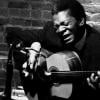
The first time that Marcos Valle performed in the San Francisco Bay Area was at the North Beach nightclub El Matador. The year was 1965, and the Rio de Janeiro-raised vocalist and multi-instrumentalist was in the midst of a 15-month U.S. sojourn at the behest of a rising pianist named Sérgio Mendes, who’d recruited Valle for the second version of Sérgio Mendes & Brasil ’65.
The bossa nova phenomenon had peaked commercially the year before, and Mendes, who died earlier this month at the age of 83 in his adopted hometown of Los Angeles, was looking to establish himself on the U.S. music scene with songs by the rising generation of Brazilian composers, including Jorge Ben, Edu Lobo, and Valle himself.
“It was at the beginning of my career, and I was undecided about what direction to go,” recalled Valle, 81, on a recent video call from his Rio studio. “Sérgio was still organizing Brasil ’65, and I would sing with the band. We traveled a lot, and I remember when we played in San Francisco, we stayed at a houseboat in Sausalito where [Brazilian jazz pianist] João Donato lived.”
Having just celebrated his 81st birthday, but looking and sounding a good decade younger, Valle performs for only the second time in the Bay Area on Sept. 22 at Berkeley’s UC Theatre. Presented by the L.A. production house and label Jazz Is Dead, his 16-city North American tour opens Sept. 17 at The Ford in Los Angeles. Traveling with the great Brazilian jazz combo Azymuth, which plays opening sets and also serves as the bulk of his band, he also performs at Santa Cruz’s Rio Theatre on Sept. 21.
Valle had already started making a name for himself back home when he accepted Mendes’s invitation to collaborate. The original Tamba Trio, a beloved and influential bossa jazz combo, had scored a hit in 1963 with Valle’s song “Sonho de Maria.” Recognized as a rising talent at 19, he released his debut album, Samba Demais, the following year, focusing on his original compositions with lyrics by his older brother, Paulo Sérgio Valle.
Valle made some important musical and entertainment business contacts during his time in the U.S., but ultimately, he decided to move back to Rio (“I was more interested in pursuing my own career,” Valle said) before Mendes released his breakthrough album, Herb Alpert Presents Sergio Mendes & Brasil '66, with the international hit “Mas Que Nada.”

“Sérgio brought more attention to bossa nova,” Valle said. “It was already strong. He brought the other side of samba jazz and the strong rhythms. He had this sense of show business, which was very important for American audiences. I feel very sad he’s gone, but his music is here.”
If Valle doesn’t have the showmanship of Mendes, he seems to possess a bottomless well of inspiration. Over the decades he’s released nearly two dozen studio albums, projects that encompass his bossa nova standards, psychedelic rock, percussion-powered samba, disco, and 1990s dance music.
He’s collaborated with the greatest jazz vocalists, working with legends such as Sarah Vaughan, Elis Regina, and Joyce while striking up a productive collaboration with Stacey Kent in recent years. Sampled by the likes of Jay-Z, Kanye West, and Pusha T, Valle’s music continues to resonate in popular culture. And rivaling the success of Jorge Ben’s “Mas Que Nada,” Valle penned the ubiquitous hit bossa nova “Samba de Verão,” which became a jazz standard with both his brother’s original Portuguese lyrics and in English as “So Nice (Summer Samba)” with lyrics by Norman Gimbel.
Valle introduced the song on his first album in 1964, but it was organist Walter Wanderley’s instrumental version that hit the U.S. pop charts two years later. Numerous American and Brazilian vocalists started recording the tune, including Astrud Gilberto (with Wanderley) on the 1966 album A Certain Smile, a Certain Sadness. It was a banner year, as three versions of the song hit the Billboard charts at the same time. Among the tune’s hundreds of recordings, Bebel Gilberto memorably covered it on her breakthrough 2000 album, Tanto Tempo. It’s a song that’s never left Valle’s repertoire.
“Sometimes I keep [it] for the first encore,” he said. “I wrote this song when I was so young. I never imagined what would happen, but it became so important to me. It’s been recorded and rerecorded in jazz, pop, rap. I’m very grateful. I always try to bring new arrangements to give [it] a different flavor.”
Valle is touring in conjunction with the release of Túnel Acústico, a gorgeous album that draws from across his six decades of creative ferment, including “Feels So Good,” a track featuring vocals by the late soul powerhouse Leon Ware, recorded in 1979 during Valle’s five-year stint in L.A. On tour he’s joined by bassist Alex Malheiros, the last original member of Azymuth (which accompanied Valle on his classic 1973 album Previsão do Tempo). Recent Azymuth members drummer Renato Calmon and keyboardist Kiko Continentino round out Valle’s rhythm section, with Jessé Sadoc on trumpet and Valle’s wife, Patricia, contributing vocals.
While the concert at The UC Theatre is Valle’s first Bay Area performance in nearly 60 years, he did live briefly in San Francisco in 1975, when he left Brazil to escape the stultifying authoritarian government. At first he split an apartment with a cousin who’d settled in San Francisco, but after three months they decided to move down to L.A. Valle wanted to take a break from performing, but “things started to happen,” he said.
Things like a call about collaborating with Sarah Vaughan, who was starting to work on a Beatles songbook project with arrangements by the father-and-son team of Marty and David Paich. It took several years for the album to come out, but when Atlantic released Songs of the Beatles in 1981, Valle’s vocals on “Something,” with his new Portuguese lyrics, made it a standout track. “Then Vaughan came to my house and said, ‘I want to record your songs,’” he recalled. She led off her 1977 album I Love Brazil! with Valle’s “If You Went Away (Preciso Aprender a Ser Só).”
“This was perfect,” Valle said. “I [had] just arrived in L.A., and already I’m recording with Sarah Vaughan. Then [the band] Chicago and Leon Ware. I could surf. I bought a motorcycle and got into the spirit of L.A. But I hated to be away from Brazil.”
The relationship with Jazz Is Dead revitalized his Southern California connection, starting with his 2020 collaboration with musician and producer Adrian Younge, the label’s co-founder with Ali Shaheed Muhammad. Wherever Valle goes around the world, good things seem to lead him back to California.




